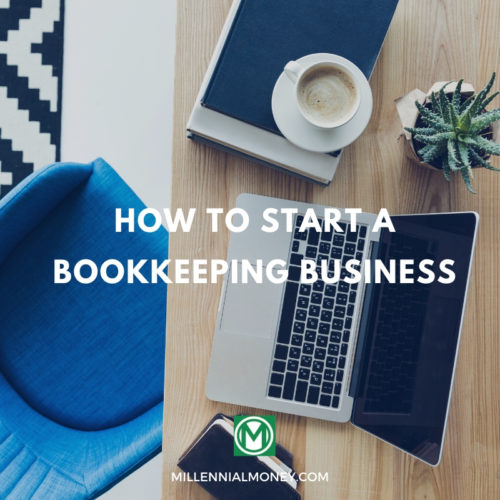As a freelance business owner, it can be overwhelming to do all the daily tasks on your own. Handling finances, organization, and other accounting tasks can be downright stressful and annoying.
This is why I strongly recommend that you evaluate whether or not you should do the bookkeeping and taxes yourself, or hire a professional bookkeeper.
There are several different levels of bookkeepers. Each of them knows the basics, but the more advanced types of bookkeepers can even do tax prep and other skilled operations, like financial statements.
What Does a Bookkeeper Do?
During my 10+ years of being a Certified Bookkeeper for small businesses in the Dallas, Texas area, I learned exactly what’s involved with the bookkeeping process.
If you’re wondering, what does a bookkeeper do and what are their responsibilities? I have the answers!
Most Common Bookkeeping Duties:
- Categorizing business or personal expenses and transactions
- Sending invoices to clients and vendors
- Checking receipts and verifying credit card statements
- Handling payroll and monthly/quarterly tax payments
- Reconciling bank accounts and setting up a budget
- Monthly reporting and processing of Profit and Loss statements and Balance Sheets
- Preparing taxes and financial reports for the CPA
- And so much more…
Basically whatever you need, find a bookkeeper who knows your accounting software, your business/industry, and even your personal preferences.
Different Types of Bookkeepers
There are the 3 main types of bookkeepers so you can find the best one for your business.
Oh and a CB will cost a lot more than a General bookkeeper, or even a Full-Charge, so keep that in mind.
1. General Bookkeeper
This is a person who deals with financial transactions and postings for a company or individual. Their knowledge can include easy single-entry bookkeeping or more detailed double-entry bookkeeping, and they will be familiar with financial software like Quicken or Quickbooks.
A General bookkeeper (or just any bookkeeper without specific training) is responsible for recording all transactions into the general ledger, posting invoices and payments, and keeping up with monthly bank reconciliations.
This type of bookkeeper can start at an entry-level position, and move all the way up to basically running the whole financial department — depending on their talent and knack for organizing the numbers.
They can start out with little to no experience in this field, although researching or taking a few classes is very beneficial. There’s no requirement for continuing education or staying up-to-date on anything in particular.
2. Full Charge Bookkeeper
This is a person who has many of the same responsibilities as a regular/general bookkeeper. The few differences are that they have to prepare financial statements, and in most cases handle payroll.
They usually handle the financial transactions for small-to-medium sized companies and have a higher level of experience based on the fact they may have taken a few accounting courses or classes.
Like with a basic bookkeeper, there aren’t any requirements for keeping up-to-date on education or changes for a Full Charge bookkeeping position.
3. Certified Bookkeeper
This type of bookkeeper is much more knowledgeable. They handle everything that general and full charge bookkeepers do, on a daily basis, and lots more.
A Certified bookkeeper must have at least 2 years (proven) experience working in the accounting field, and pass a four-part national exam.
They are expected to prepare all the financial and income statements, keep up with daily transactions, accounts payable and receivable, general ledger, and any other accounting needs.
I was a Certified Bookkeeper (CB) for over 10 years and received my training through the American Institute of Professional Bookkeepers.
Certified Bookkeepers qualify for the CB title after their name, much like a CPA title.
They are responsible for payroll and reporting to the state, quarterly tax payments, and with prepping year-end tax documents and financial statements.
To maintain the CB title, you have to stay current on continuing education and changing tax laws. This is much different to a general or Full Charge bookkeeper and will cost more to hire them to manage your business finances.
Outsourcing Your Bookkeeping
Thanks to the digital age, you now have the opportunity to outsource your bookkeeping to a firm or agency for a lot cheaper than having a bookkeeper on staff.
In fact, you should expect to pay anywhere from $300 – $2,000 a month or more for having a bookkeeper on retainer. However, outsourcing your bookkeeping to an established firm, can not only save your business but save your wallet.
With a firm like Bench, you can partner with your very own bookkeeper and interact with them on a daily basis if needed.
I’ve personally used Bench and have a great relationship with their team. If there’s something you need help with, I can hook you up. The great thing about Bench is that you can sign up for a free trial to see if you like their service.
If not, no harm is done. And if you DO enjoy outsourcing your bookkeeping to Bench, the starter package is only $249 per month.
Finding the Right Type of Bookkeeper for Your Business
Bookkeepers can be called many things; head bookkeeper, junior accountant, accounting clerk, and even “bean counter.”
But the job description is basically the same, to help run the daily books for businesses and individuals.
Bookkeepers are a vital part of keeping a small business running smoothly.
If you are just starting out, you might look into hiring a less educated and less expensive bookkeeper/accountant. One that you can work hand in hand with as the business grows.
It will be much easier to teach an assistant bookkeeper the ropes of how you want things done versus hiring an expert right away.
Otherwise, if you are looking for a more advanced bookkeeper, you will want to go with someone who has more experience, like a Certified Bookkeeper. They will have a lot more knowledge, expertise, and skills under their belt.




No comments yet. Add your own